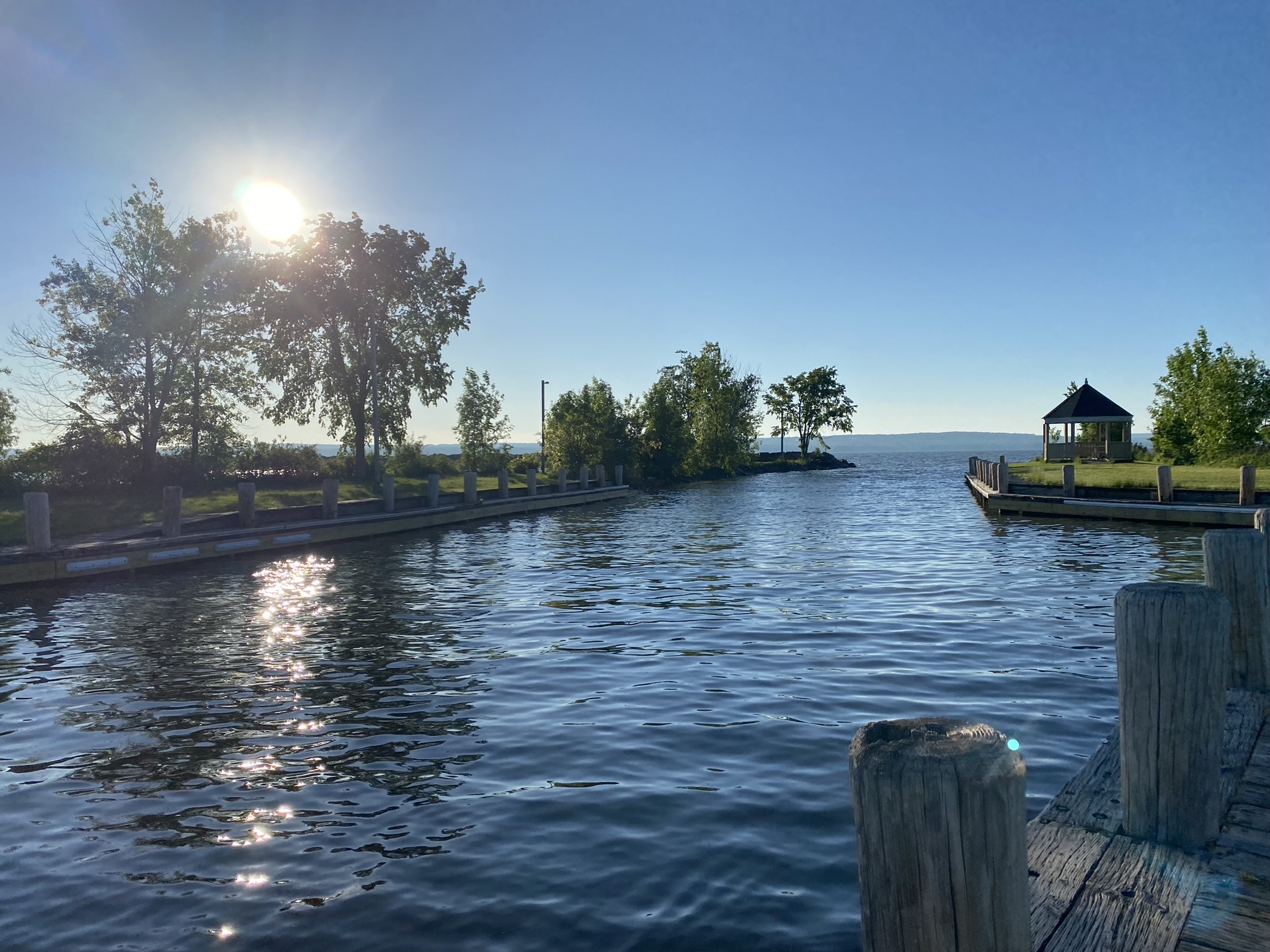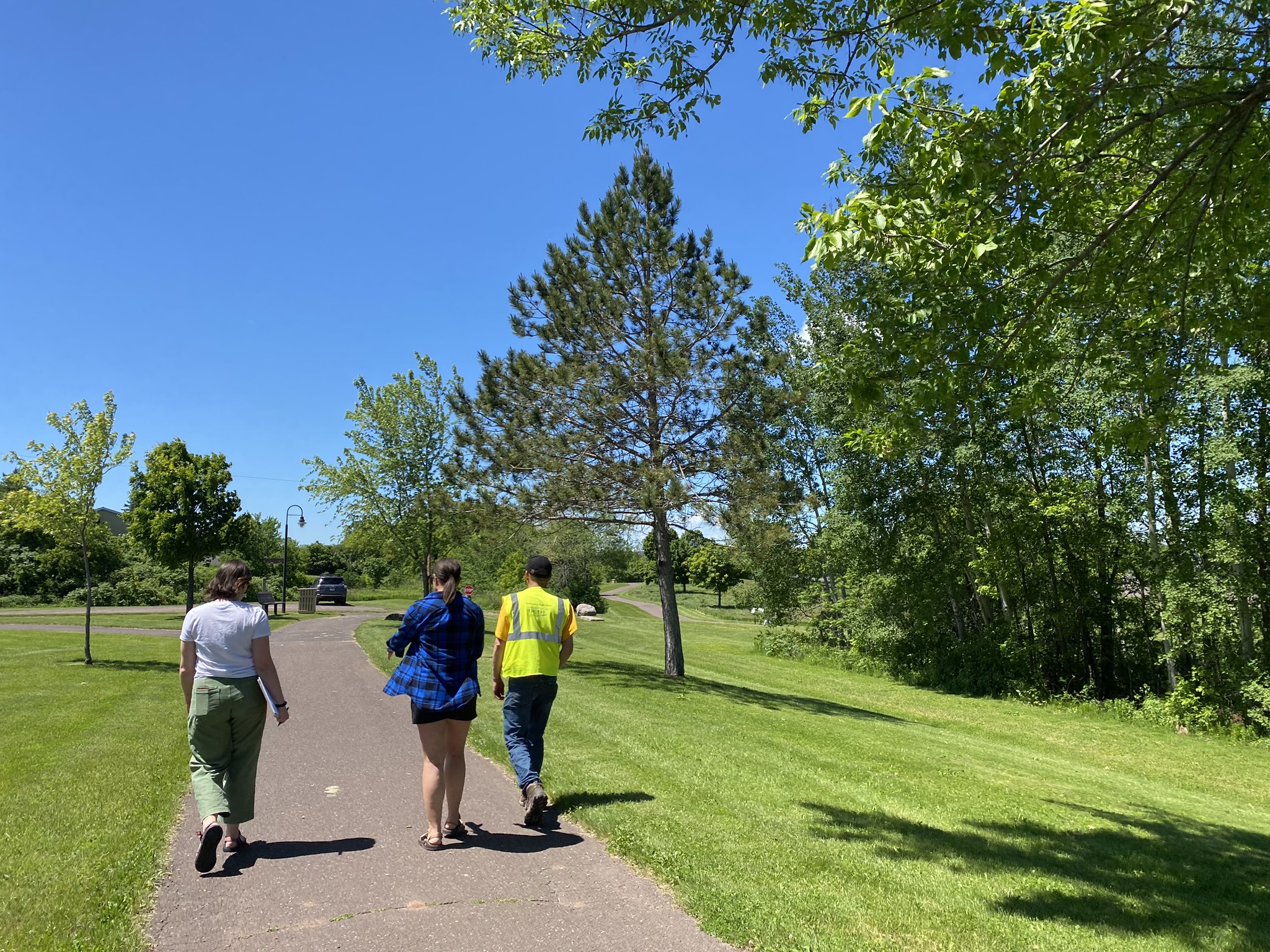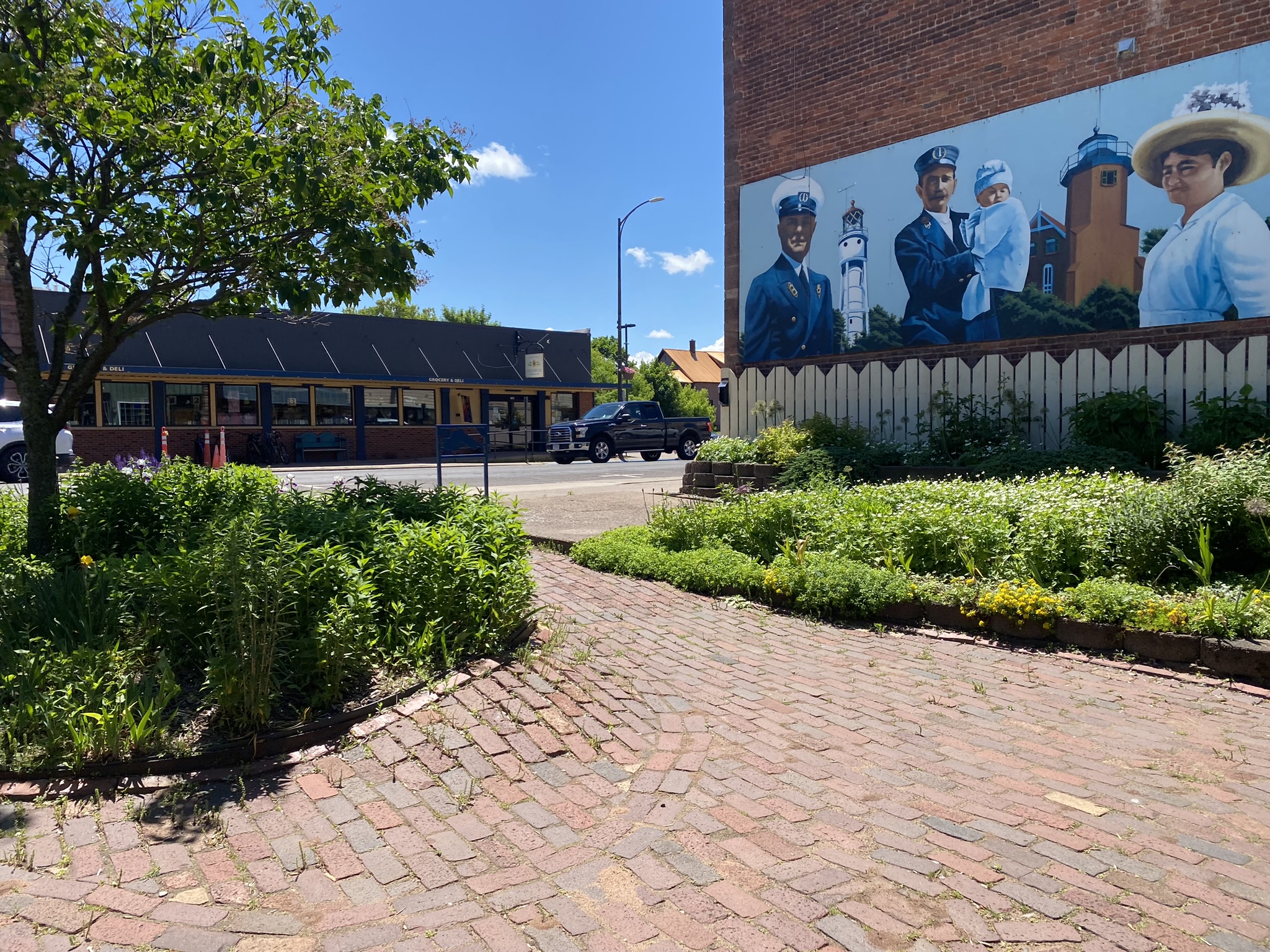Ashland is a uniquely beautiful city nestled along Lake Superior within northern Wisconsin’s Chequamegon Bay. Known for its iron mining, stone quarrying, and lumber industries in the 19th and 20th centuries, the city has reoriented itself as an outdoor recreation and tourist destination over the last few decades and is a popular site for recreational boating, swimming, and winter ice-fishing.
Ashland is fortunate to have a wealth of outdoor recreational assets, including over 25 parks, 11 miles of multiuse and waterfront trail, and one-of-a-kind destinations like Oredock Park — a walking promenade and public space built on the foundation of a former industrial mega structure. Like many Wisconsin communities, the City of Ashland faces challenges, like a declining population and limited municipal resources and staff, that make maintaining its recreational assets more difficult. To address this challenge, the City of Ashland partnered with MSA Professional Services, Inc. (MSA) in the spring of 2024 to develop the community’s first Parks Master Plan (PMP) aimed at improving the long-term maintenance of its outdoor recreational assets — particularly its waterfront parks along Lake Superior — through financially and environmentally sustainable strategies.

The project occurred over multiple phases, beginning first with public engagement. Between March and May 2024, the Ashland community provided input on the project through a public input meeting at the local community center and through an online survey. Additionally, MSA met with city department heads and conducted a virtual focus group with community leaders. Later that summer two MSA staff traveled to Ashland to tour and assess the city’s parks and meet with local leaders. Over the course of two days MSA staff were able to visit all of Ashland’s parks and gain invaluable insight into the issues and opportunities facing the Ashland Parks and Recreation Department (APR) and the community overall.

During the fall of 2024, MSA dug deeper into Ashland’s parks system by assessing key park metrics in a national and regional context, synthesizing feedback into top community priorities, and developing guiding policy goals and objectives. MSA evaluated APR’s five years’ worth of budget and financial information and worked with city staff to develop a capital improvement plan for improving the Ashland parks and recreation system over a 5-year horizon. The plan identifies key projects such as a new boat launch, trail rerouting for accessibility, and removal of unsafe amenities. A standout recommendation is a turf-to-prairie conversion strategy to reduce mowing costs, support pollinators, and enhance stormwater retention at key sites throughout the park system. A draft PMP was presented at a joint meeting of the Ashland Parks and Recreation, Sustainability, and Public Works committees in November 2024, and again to the Committee of the Whole in December.

Over the course of the planning process, it was identified that Ashland’s Comprehensive Outdoor Recreation Plan (CORP) had not been updated since 2019, leading to a lapse in the city’s eligibility to apply for Wisconsin Knowles-Nelson Stewardship Program funding. Since the PMP fulfilled many of the DNR’s requirements for CORPs, it was determined that the two plans should be combined into one final, guiding document. In early 2025 MSA extended its collaboration with Ashland to develop the unified PMP and CORP document.
MSA and city staff worked together to restructure the PMP and complete the remaining elements needed to fulfill the DNR’s requirements for CORPs, which included some additional demographic and geographic analysis and background information. The public was given another opportunity to weigh in on priority capital investments through a public open house in March 2025. A final draft of the CORP was presented to the Parks and Recreation Committee in April, and the plan was formally adopted in June 2025.
The unified CORP and Master Plan reflects a commitment to efficient planning and strategic investment — delivering a cohesive, sustainability-focused roadmap that balances fiscal responsibility with ecological care across the City of Ashland’s waterfront and inland recreational assets.
